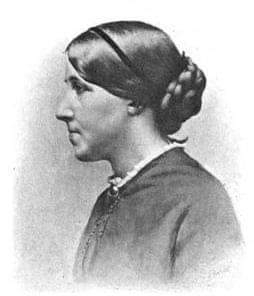Louisa May Alcott, renowned for her classic novel "Little Women"
Louisa May Alcott, renowned for her classic novel "Little Women," also played a significant role as a Civil War nurse, a chapter in her life that greatly contributed to her literary acclaim. Born into a family of New England intellectuals and idealists, Alcott grew up among transcendentalists, abolitionists, and social activists. Her family's home was a hub for prominent figures of the era and served as a station on the Underground Railroad, hosting individuals like Frederick Douglass and John Brown.
With the outbreak of the Civil War, Alcott volunteered as an army nurse, driven by a desire to contribute despite not being able to fight. Despite being younger than the age requirement set by Superintendent of Nurses Dorothea Dix, Alcott was accepted due to her evident dedication and the fact that she was not seeking a husband, aligning with her feminist ideals.
Her assignment at a Georgetown hospital lasted six weeks before a severe typhoid fever forced her to stop. During this time, Alcott penned a series of sketches based on her experiences, which she initially sent to her family. Encouraged to publish them, she altered some details, adopting the pseudonym "Tribulation Periwinkle." These sketches were first published in a Boston anti-slavery magazine and later compiled into her first book, "Hospital Sketches," in 1863. This work, characterized by wit, intelligence, and sharp observation, earned her significant recognition and paved the way for her later success with "Little Women."
Today, on November 29, we commemorate Louisa May Alcott, who was born 191 years ago, celebrating not just her literary contributions but also her impactful role in a pivotal era of American history. Her life and works remain a testament to the power of dedication, compassion, and the pursuit of social justice.



